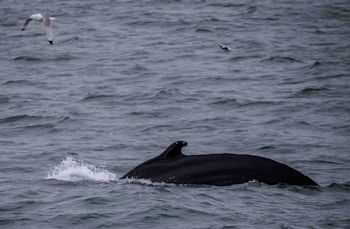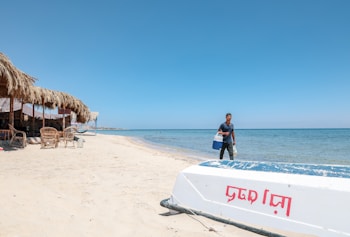 Spanish
Spanish
Vocab Builder for commonly used words in Spanish.

Internet
The Spanish word 'Internet' also means 'Internet' in English. It is a global network connecting millions of computers. More than 100 countries are linked into exchanges of data, news and opinions. Unlike online services, which are centrally controlled, by design, the Internet is decentralized. Each Internet computer, called a host, is independent.
Example sentences with Internet →
Investigación y Desarrollo (I+D)
The Spanish term 'Investigación y Desarrollo (I+D)' translates to 'Research and Development (R&D)' in English. This term is commonly used in a business or scientific context, referring to innovative activities undertaken by organizations or corporations in the development of new services, products, or procedures. The process generally involves substantial investments of resources to generate new knowledge, with the overall goal of improving operations, competitiveness, and future growth.
Example sentences with Investigación y Desarrollo (I+D) →
Leo
The Spanish word 'Leo' translates to 'Leo' in English. It is a proper noun and is often used as a first name, just as 'Leo' is frequently used as a first name in English. The name originates from Latin, where 'leo' means 'lion'. This name is often given to people born under the Leo zodiac sign, which is represented by a lion. 'Leo' possesses the same spelling and pronunciation in both Spanish and English.
Example sentences with Leo →
Letras del Tesoro
The Spanish phrase 'Letras del Tesoro' is translated into English as 'Treasury Bills'. These are short-term debt obligations issued by a national government with maturity periods ranging from a few days to 52 weeks. They are sold at a discount from their face value, and don't pay interest per se. Instead, they are redeemed at their face value upon maturity. The return to investors is the difference between the purchase price of the bill and the amount paid out at maturity (or upon prior sale).
Example sentences with Letras del Tesoro →
Los hijos
In Spanish, 'los hijos' means 'the children', and it represents any person who is under the age of adulthood. A child commonly refers to a son or daughter at any age. Children are considered great blessings in Spanish cultures.
Example sentences with Los hijos →
Los tíos
'Los tíos' directly translates to 'the aunts and uncles' in English. Spanish cultures maintain a strong emphasis on the extended family, often including aunts and uncles in family gatherings and important occasions.
Example sentences with Los tíos →
Mae
'Mae' is a common term in Costa Rica used informally to refer to a friend, similar to 'dude' or 'mate' in English.
Example sentences with Mae →
Mango
A tropical fruit that is known for its flavor, fragrance, taste, and heath promoting qualities. It is rich in vitamins A, C, and D.
Example sentences with Mango →
Medicina
The Spanish word 'Medicina' translates to 'Medicine' in English. It is used in the same context as it is in English, referring to the science and practice of the diagnosis, treatment, and prevention of disease. It can also be used to reference drugs or medication used in the treatment and prevention of illnesses. Additionally, 'Medicina' can refer to a course of study at universities, similar to 'medical school' in English.
Example sentences with Medicina →
Mejor amigo
This is the Spanish phrase for 'best friend'. It refers to a friend who someone regards as their closest and dearest friend.
Example sentences with Mejor amigo →
Mercurio
Mercurio is the Spanish name for Mercury, which is the smallest and innermost planet in our solar system. This term may not only refer to the celestial body itself, but also to the chemical element with the symbol Hg and atomic number 80 on the periodic table, which is known for its silvery, fluid-like appearance at room temperature. In Roman mythology, Mercurio (Mercury) is a major god, serving as the messenger to the gods, guide of dead souls to the underworld, and patron of commerce, among other roles.
Example sentences with Mercurio →
Meteorología
Meteorology is the scientific study of the atmosphere and its phenomena, especially in relation to weather and weather forecasting. It seeks to understand and predict the Earth's atmospheric conditions, including patterns such as climate and weather.
Example sentences with Meteorología →
Ministerio
The Spanish word 'Ministerio' translates to 'Ministry' in English. In a governmental context, a ministry is a department or specific branch of a government. This division is headed by a minister who is appointed by the head of the state. Ministries focus on a specific segment of governance like health, defense, education, and more. Thus, 'Ministerio' refers to these specific departments within a government or organization.
Example sentences with Ministerio →
Ministerio de Hacienda
The 'Ministerio de Hacienda' in Spanish refers to the 'Ministry of Finance' in English. This is a government department that is responsible for managing a country's money. The Ministry of Finance typically manages all of a country's revenues, expenditures, and borrowing. It is in charge of budget creation, tax collection, funding economic priorities, monitoring expenditures, and managing public funds. The ministry plays a key role in improving the economic and financial prosperity of a country.
Example sentences with Ministerio de Hacienda →
Navidad
The Spanish word for 'christmas' is 'Navidad'. It is used the same way as 'christmas' in English. It refers to the annual Christian festival celebrating Christ's birth, held on December 25 in the Western Church. It's a widely celebrated holiday in Spanish-speaking countries, often marked with family gatherings and festive decorations.
Example sentences with Navidad →
Nordeste
Northeast, known as 'Nordeste' in Spanish, refers to the direction that is at an angle of 45 degrees on a compass. In Geography, it is often used to describe the region of a country, area, or city that is situated towards the northeast. In context, it can refer to the part of a place (such as a country or region) that is towards the northeast, or it can also refer to the northeastern part of a particular place.
Example sentences with Nordeste →
Noroeste
The Spanish word 'Noroeste' is translated as 'Northwest' in English. It is a cardinal point on the compass indicating a direction in between North and West. It's commonly used in geographic contexts, or when giving or receiving directions. The term is a combination of 'Norte' which means 'North' and 'Oeste' which means 'West'.
Example sentences with Noroeste →
Nos vemos
This is a common and casual way of saying goodbye when you expect to see the person again.
Example sentences with Nos vemos →
Nuevo Testamento
The Spanish term 'Nuevo Testamento' translates to 'New Testament' in English. The New Testament is an integral part of the Christian biblical canon, and it's centered on the life, teachings, death, and resurrection of Jesus Christ. This term is commonly used in religious contexts and conversations about Christianity.
Example sentences with Nuevo Testamento →
Número de Identificación Fiscal (NIF)
Número de Identificación Fiscal (NIF) is a Spanish term that translates to 'Tax Identification Number' in English. It is a sequence of digits issued by the Spanish Tax Agency to every taxpayer, corporations and individuals alike. This number is used for tax-related matters, similar to the Social Security Number in the United States, which serves to identify the taxpayers in the country.
Example sentences with Número de Identificación Fiscal (NIF) →
Oceanografía
Oceanography is a branch of Earth science that studies the physical and biological aspects of the ocean. It covers a wide range of topics, from marine life and ecosystems, to currents and waves, to the movement of sediments and to seafloor geology.
Example sentences with Oceanografía →
Oceanía
The word 'Oceanía' represents a region in the world, translated as 'Oceania' in English. Including Australasia, Melanesia, Micronesia and Polynesia, the region consists of oceans and islands, notably Australia and New Zealand among thousands of other island states and territories. It also includes the Pacific Ocean. This geographical term was derived from the Greek word 'Ωκεανός' (Okeanos, Oceanus) meaning 'Ocean'.
Example sentences with Oceanía →
Organización de Estados Iberoamericanos (OEI)
The 'Organización de Estados Iberoamericanos (OEI)' is an international organization, known in English as the 'Organization of Ibero-American States (OEI)'. This organization consists of 23 member countries primarily from Latin America, Spain, Portugal and Equatorial Guinea. In English-speaking countries, it's commonly referred to by its acronym 'OEI'. The OEI is based in Madrid, Spain and mainly concerns itself with education, science, technology and culture in the Ibero-American space.
Example sentences with Organización de Estados Iberoamericanos (OEI) →
Organización de las Naciones Unidas (ONU)
The 'Organización de las Naciones Unidas (ONU)' is a Spanish term, which translates to 'United Nations Organization (UN)' in English. The United Nations is an international organization founded in 1945. It is composed of nearly every independent nation and serves as a global forum for resolving international conflicts, facilitating cooperation in international law, promoting human rights, fostering social and economic development, and coordinating efforts to tackle global challenges, such as climate change and poverty.
Example sentences with Organización de las Naciones Unidas (ONU) →
Organización del Tratado del Atlántico Norte (OTAN)
The 'Organización del Tratado del Atlántico Norte (OTAN)' is Spanish for 'North Atlantic Treaty Organization (NATO)'. This signifies an international organization composed of North American and European countries brought together by the North Atlantic Treaty, which was signed on 4 April 1949. This entity functions as a collective defence wherein independent member states agree to mutual defense in response to an attack by any external party.
Example sentences with Organización del Tratado del Atlántico Norte (OTAN) →
Oriente Medio
The term 'Oriente Medio' is a geographical reference used in Spanish language, and when translated into English, it means 'Middle East'. This refers to the region stretching from the eastern Mediterranean to Iran, including countries like Israel, Jordan, Lebanon, Syria, Iraq, Saudi Arabia, Iran, and so on. The term, Middle East, is widely used in English to wonder about the eastern part of the 'middle half' of the globe.
Example sentences with Oriente Medio →
Oriente Próximo
The Spanish term 'Oriente Próximo' translates to 'Near East' in English. The Near East is a geographical term that traditionally referred to the wider geographical area beyond the Balkans and to the east of the Mediterranean Sea. Although its context may vary over time, currently, it is primarily used to refer to Western Asia. Please note that context changes the meaning of geographical terms so it's important to understand it from the context where is being used.
Example sentences with Oriente Próximo →
Qué onda
This is a common slang expression in Mexico and other Central American countries that is used as a casual greeting, similar to 'what's up' in English.
Example sentences with Qué onda →
RENFE (Red Nacional de Ferrocarriles Españoles)
RENFE (Red Nacional de Ferrocarriles Españoles) is a Spanish word referring to the National Network of Spanish Railways. It's the state-owned company which operates freight and passenger trains on the 1,668 mm (5.5 ft) Iberian gauge, 1,435 mm (4 ft 8.5 in) standard gauge, and 1,000 mm (3 ft 3.4 in) meter gauge networks in Spain. Ultimately, RENFE symbolizes both the vast history and modern development of rail transport in Spain.
Example sentences with RENFE (Red Nacional de Ferrocarriles Españoles) →
Ramadán
Ramadán is a term in Spanish that translates to 'Ramadan' in English. Ramadan is the ninth month of the Islamic calendar, observed by Muslims worldwide as a month of fasting, prayer, reflection and community. This annual observance is regarded as one of the Five Pillars of Islam. The month lasts 29–30 days based on the visual sightings of the crescent moon.
Example sentences with Ramadán →